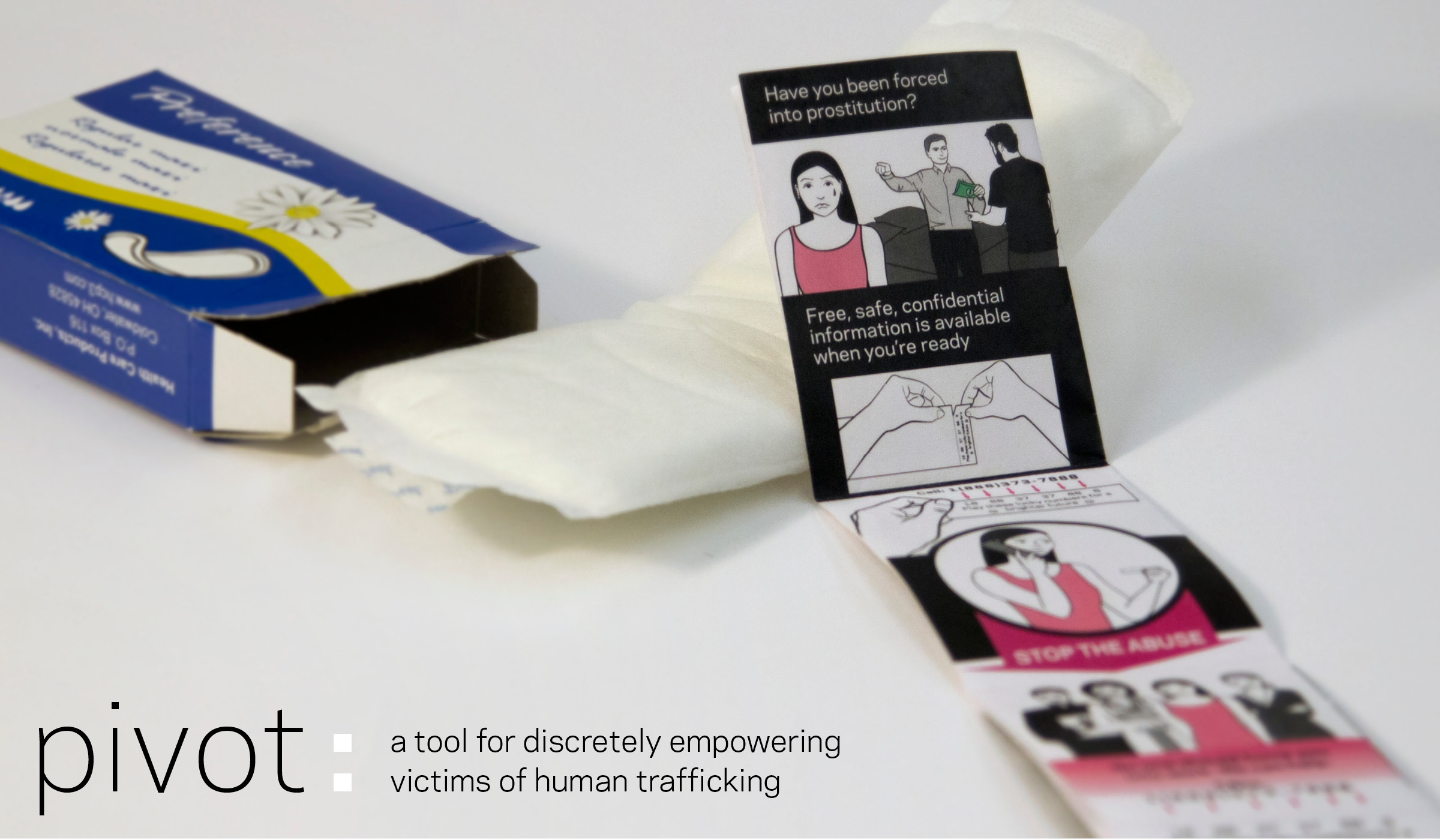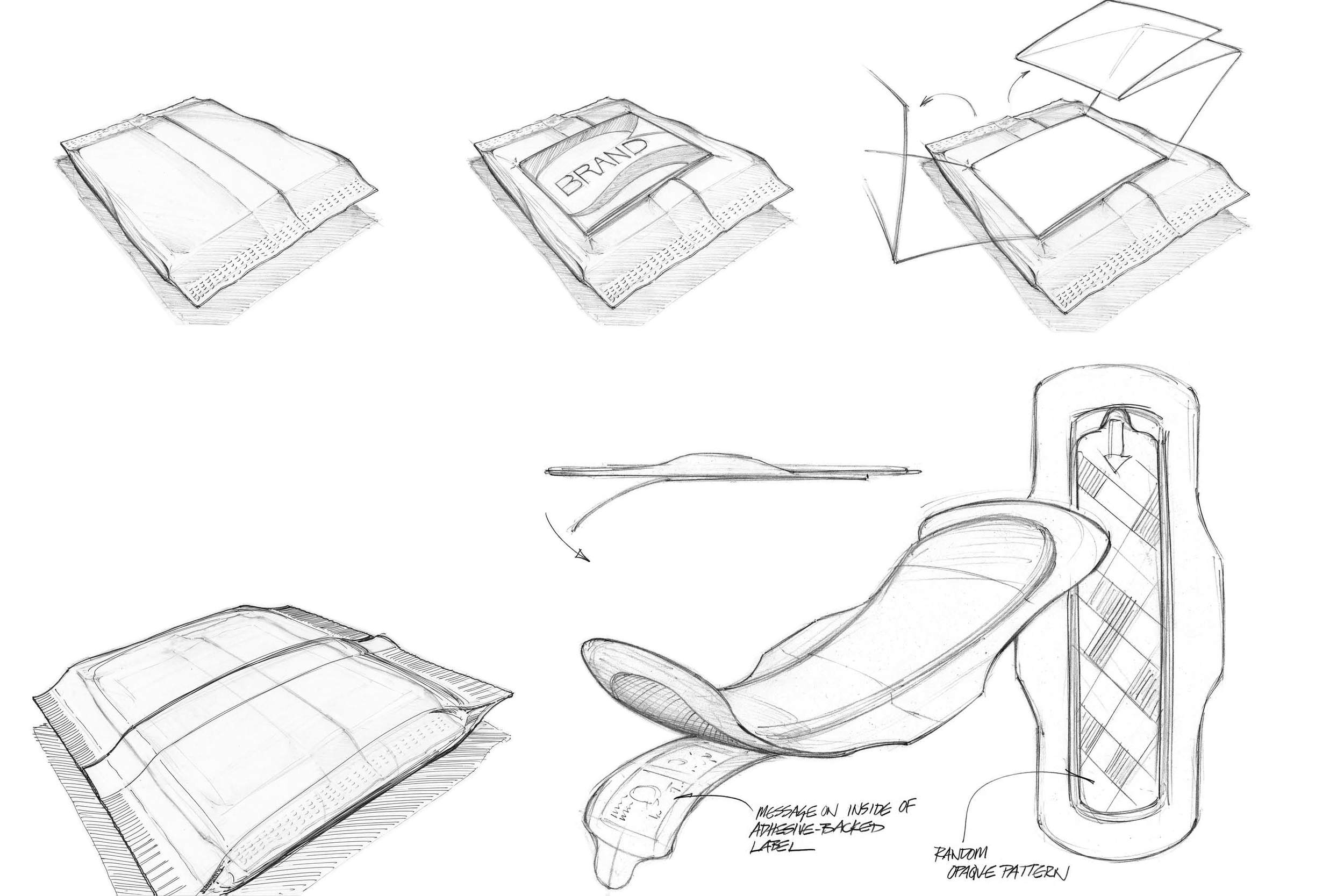




Pivot provides rescue information to human trafficking victims without detection by their captors. Ordinary-looking sanitary pads are distributed by activists and healthcare providers to suspected victims. Hidden inside each pad is an insert with rescue information and a trafficking hotline number. A victims accesses the insert in the privacy of a restroom, detaches the phone number (disguised as a fortune-cookie tab), and flushes the rest of the insert in the toilet.
Pivot was designed as a tactical intervention that facilitates communication between human rights activists, victims, and support services. It is not a stand-alone solution to the entire problem of human trafficking; rather it offers a cost-effective mechanism to address the discrete problem of providing rescue information to victims without their captors’ knowledge. It’s primary limitation is in exclusively targeting female victims. While women make up the majority of persons traffick for sex and domestic labor, men are also trafficked, particularly for industry and agricultural work.
Credits:
Mike Fretto
Kari Gaynor
Josh Nelson
Adriel Rollins
Melanie Wang
Tad Hirsch (advisor)

Human trafficking is the use of force, fraud or coercion to compel a person into any form of labor against their will. It can occur in any industry, including agriculture, construction, domestic service, restaurants, salons, commercial sex work, massage parlors, and small businesses, and does not necessarily involve transportation, despite its name. In collaboration with members of Washington’s anti-human trafficking community, the Studio is developing Pivot, a project to help trafficked individual connect with support services.
In Washington State, an advocacy organization called The Washington Anti-Trafficking Response Network (WARN) has helped to establish a hotline service that promises to connect victims with vital services within 24 hours, anywhere in the state. WARN is part of the Polaris Project’s National Human Trafficking Resource Center, a nationwide network of organizations providing services to human trafficking victims.
Among WARN’s biggest challenges is outreach — letting victims know about the hotline, and enabling victims to able access it when they are ready to emancipate themselves. They must inform victims of their rights and direct them to emergency services in memorable ways that are culturally and linguistically appropriate, and which don’t arouse captors’ suspicions. Pivot addresses this need by enabling rescue workers to surreptitiously communicate directly with victims.